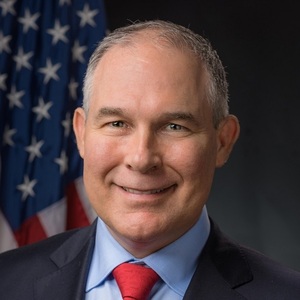Pruitt discusses administration of RFS program during hearing

December 7, 2017
BY Erin Krueger
On Dec. 7, U.S. EPA Administrator Scott Pruitt appeared before the House Subcommittee on Energy and Commerce to provide testimony on the mission of the EPA. The Renewable Fuel Standard was among the topics discussed during the hearing, which spanned several hours.
Pruitt stressed the importance of the agency releasing final 2018 renewable volume obligations (RVOs) by the Nov. 30 statutory deadline. He said delays in the past have created uncertainty in the market and impacted capital outlays in the biofuels industry. He said it was very important to him to meet the Nov. 30 deadline.
Advertisement
Advertisement
The EPA administrator said that the agency has tried to focus its efforts on objective criteria when setting RVOs, including “production levels and/or demand.” For example, he noted that, to date, the highest annual cellulosic production level has been in the 180 to 190 million gallon range. Yet, he said, the EPA has historically set the RVO at approximately 300 million gallons. “When you set those levels artificially high, it creates problems elsewhere,” Pruitt said, noting he thinks it’s very important that the EPA “is as objective as possible in setting those volume obligations to reflect production levels.”
“There are a lot of questions, obviously, around the administration of the RFS,” he said. “Please know that [the EPA is] committed to doing pursuant to that statutory framework that you have established, but at the same time that statutory framework is very challenging because the levels that have been set by statute have never been met, so we’ve got a lot of challenge there.”
Pruitt also briefly touched on renewable identification numbers (RINs), noting that he believes reform is needed in the RIN market. “We need to get some accountability in the RIN market,” he said. “There is a lot of speculation that goes on with respect to RINs, there are enforcement issues, fraud that occurs …There is a lot to be done to get accountability and reform in the RIN market.”
Advertisement
Advertisement
When asked by a member of Congress to commit to setting the RVO for conventional ethanol below the blend wall, Pruitt said “I can’t commit to certain outcomes with the respect to that process. That is a rulemaking process.”
“But what I can tell you,” he said, “is we will objectively determine each year what the production levels look like they are going to be. We’re tracking those numbers now. Biodiesel has been as big a challenge as the conventional. We routinely set that at 2.1 or higher…and as indicated, we imported 700 million gallons of biomass-based diesel from Argentina to meet that 2.1-billion-gallon limit. So, we ought not be dependent upon the people of Argentina to meet a volume obligation that we are setting domestically, so that is something we will continue to look at. But we can’t prejudge those outcomes at this point.”
Related Stories
International Sustainability & Carbon Certification has announced that Environment and Climate Change Canada has approved ISCC as a certification scheme in line with its sustainability criteria under its Clean Fuel Regulations.
Legislation introduced in the California Senate on June 23 aims to cap the price of Low Carbon Fuel Standard credits as part of a larger effort to overhaul the state’s fuel regulations and mitigate rising gas prices.
The government of Brazil on June 25 announced it will increase the mandatory blend of ethanol in gasoline from 27% to 30% and the mandatory blend of biodiesel in diesel from 14% to 15%, effective Aug. 1.
The U.S. Court of Appeals for the D.C. Circuit on June 20 rejected several claims challenging the U.S. EPA’s RFS Set rule but will require the agency to provide additional information on certain environmental findings.
The 2025 International Fuel Ethanol Workshop & Expo, held in Omaha, Nebraska, concluded with record-breaking participation and industry engagement, reinforcing its role as the largest and most influential gathering in the global ethanol sector.
Upcoming Events










